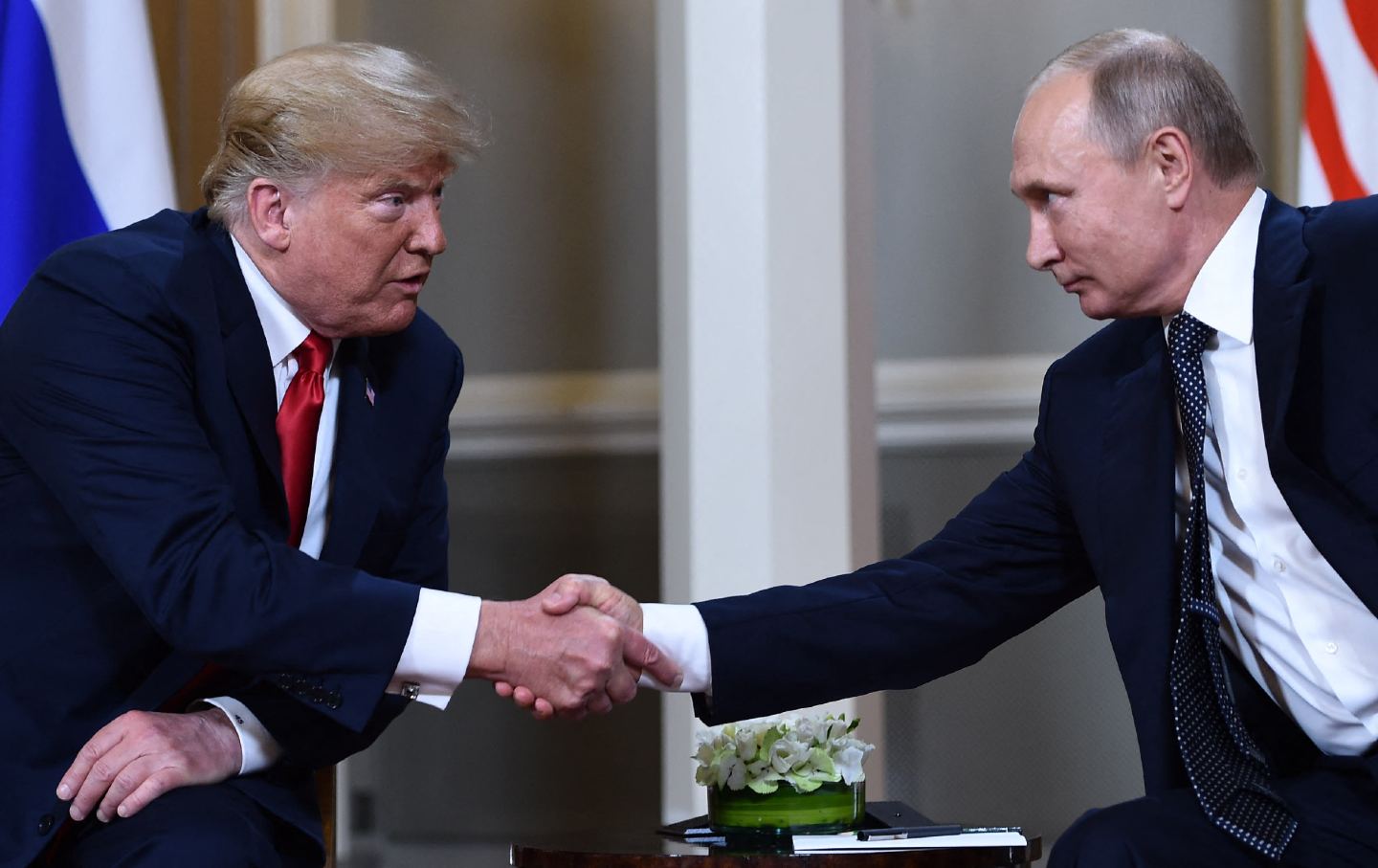In the Face of Broad Disillusionment, the ANC Makes a Big Push to Gain Majority Support in South Africa’s Election
For the first time since the end of apartheid, the party may be forced into a coalition government. Decades of broken promises have left many former supporters disillusioned.
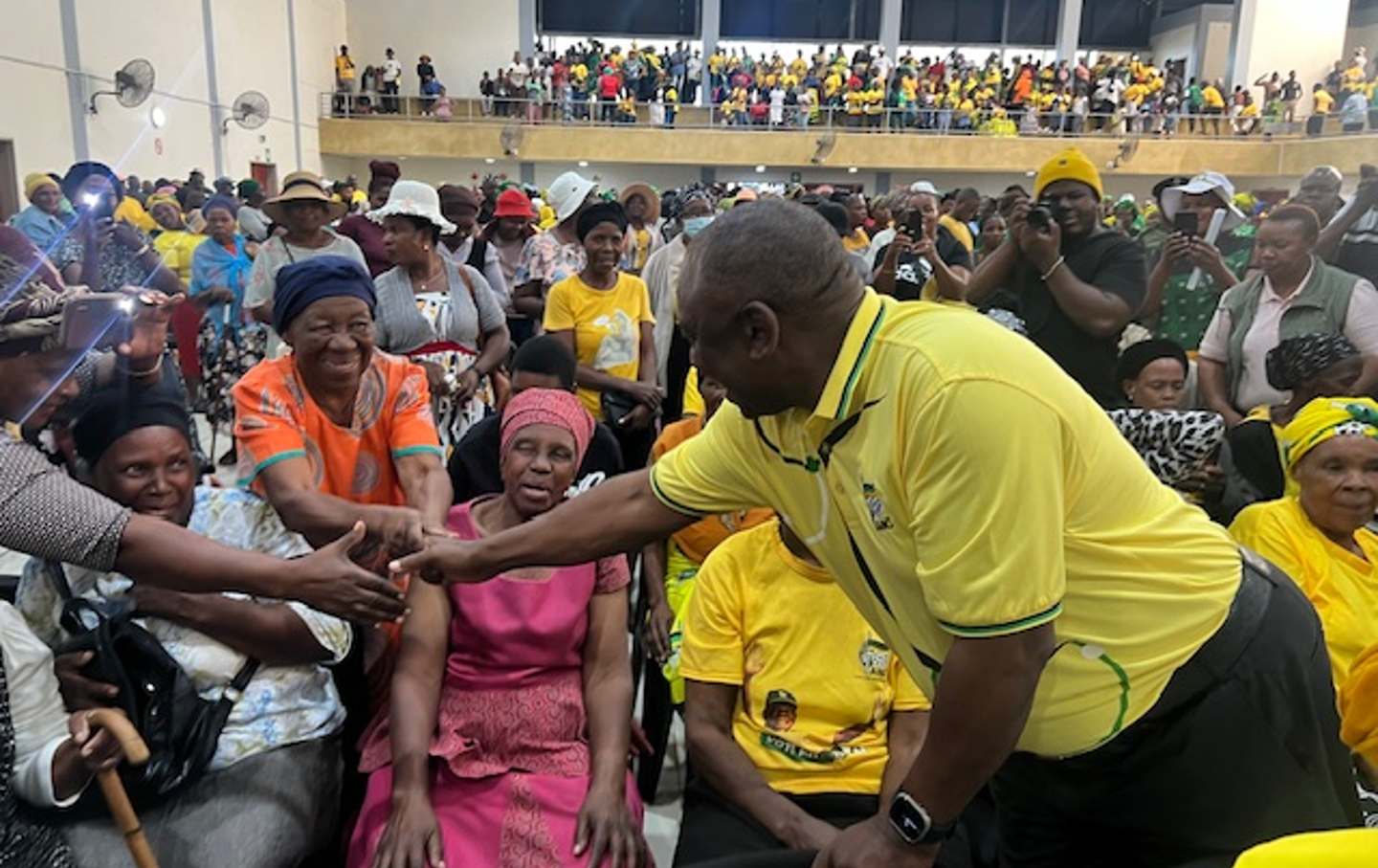
Mandeni, KwaZulu-Natal, South Africa—As polls open in South Africa this morning, the African National Congress—the famed party of Nelson Mandela that negotiated the end of apartheid—faces a day of reckoning. Voters will decide on whether the ANC will lose its governing majority as a result of its failure to deliver on multiple fronts in the now not-so-new South Africa.
Though results likely won’t be known for several days, if that were to happen, the ANC would have to form a coalition government for the first time since assuming power in South Africa 30 years ago. Today’s ballot will also determine who will govern each of the country’s nine provinces—all but one currently under ANC control.
In April 1994, I ventured to KwaZulu-Natal to watch Mandela cast his vote for the first time. At the time, he had just negotiated an end to a bloody battle there between the ANC and the heavily Zulu Inkatha Freedom Party. An iconic poster of a beaming Mandela accompanied by the ANC’s campaign slogan “A Better Life for All” blanketed the province, and the country. That promise set an extraordinarily high bar for the ANC to meet—and one that now brings the ANC’s historic failures into sharp focus.
These include incredibly high levels of unemployment and poverty, deeply rooted corruption at all levels of the party, corrosive crime, poor delivery of services in local towns and municipalities, and disastrously failing infrastructure—most notably in South Africa’s electrical supply system., which has resulted in years of power outages (which, seemingly miraculously, have vanished in the two months leading to the election.)
On a recent Saturday, I drove again through the verdant hills of KwaZulu-Natal to Mandeni to attend an ANC rally. Over 2000 ANC supporters crowded into a community hall to hear President Cyril Ramaphosa exhort them to round up all potential voters to turn out on election day.
Speaking entirely in Zulu, Ramaphosa told the crowd that the ANC is pushing for “outright victory,” which will mean getting more than 50 percent of the vote. That would still represent a significant comedown from the two-thirds majorities the party used to earn, but far less humiliating than falling under the 50 percent threshold.
What the ANC is up against are undeniable facts. The official unemployment rate is 32.9 percent, one of the highest in the world. Add to that those who have given up looking for work, and four in 10 working-age South Africans are unemployed. Some 30 percent of the population lives in extreme poverty. Shockingly, GDP growth has declined to 0.6 percent last year, among the lowest on the continent, meaning the economy is essentially stagnant.
While there has been a growth of the black middle and upper middle class, the typical black household owns only 5 percent of the wealth held by the typical white household.
In the face of these realities, why is the ANC still in power? Some of the party’s persistence is doubtless due to enduring loyalty to the party of Mandela. Some of it is based on deep support among rural voters, and their reliance on social grants and pension payments from the government, which is synonymous with the ANC.
The ANC is also the beneficiary of a multiparty system designed to ensure that even minority points of view are represented—a system set up in reaction to the way apartheid-era governments crushed expression outside of a narrow range of viewpoints, and “races.”
One consequence, however, is that no single strong opposition party has emerged to realistically challenge the ANC’s dominance, allowing it to escape accountability on multiple fronts.
In today’s election, 52 parties are on the ballot—many of them formed for the first time just to participate in this election, and fated to disappear when it is over.
The official opposition is the centrist, free-market Democratic Alliance, which currently holds just 84 seats in the 400-member national Parliament, while the ANC has 230. The DA is dominated and led mostly by whites, and has strong backing from so-called “coloured” (mixed race) South Africans, with much smaller black participation.
The only other party with significant representation in Parliament, with 44 seats, is the Economic Freedom Front, established by the populist Julius Malema, the former head of the ANC’s Youth League who was expelled from the party a decade ago. But its role so far has largely been stoking up resistance from the far left to the ANC.
The latest development in the kaleidoscope of party formation is uMkhonto weSizwe, formed by former ANC president Jacob Zuma, who was forced to resign. Under South Africa’s constitution, he is barred from sitting in Parliament because he was sentenced to 15 months in prison for ignoring a court order to testify before a commission of inquiry into corruption. But he is still on the ballot as head of his new party, named after the long-disbanded armed wing of the ANC. Latest polls suggest the party could syphon off a significant number of votes from the ANC.
The ANC government does have some accomplishments to show for its long post-Mandela grip on government, listed in detail in its “30-Year Review of South Africa’s Democracy.” These include the nearly 14 million people who have benefited from a range of housing programs. Electricity has been extended to 2.5 million households. Pass rates on the high school matriculation exams have gone from 53 percent in 1995 to 82 percent today, and enrollments in public universities have doubled.
Popular
“swipe left below to view more authors”Swipe →But these improvements are not visible, are taken for granted, or don’t go far enough, especially among the millions of young people who can’t find work.
There is a reasonable argument to be made that 30 years is a short time to turn around the legacy of 300 years of racist rule. But for people who were children when Mandela was elected president, or hadn’t even been born yet—the called “born-frees”—it is a lifetime.
One of them is 36-year-old Adeleen Phungula, the lead singer at a recent rally I attended at a stadium outside Johannesburg held by RISE Msanzi. It’s a new party formed by Songezo Sibi, a 47- year-old former journalist and communications executive.
“I have never had a job for my whole life,” Phungula told me. She managed to survive with monthly social grants of R350 (about $20) from the government, and occasional singing gigs. She is overjoyed to be receiving her first regular paycheck as an organizer for RISE Msanzi (the colloquial term for South Africa in Xhosa).
Students enrolled in the University of Witwatersrand’s innovative Drama for Life arts program in Johannesburg like 31-year-old Somali Toyi also appear to have given up entirely on the ANC. Days before the election, many of her classmates were still undecided, or were not planning on voting. The university program offers hope: a pathway to advanced degrees for actors and other artists who don’t have a formal college education.
Toyi grew up in Gugulethu, a black township outside of Cape Town. Her mother, still a loyal ANC supporter, applied for a house in 1996, when Somali was 4, but lives in the same shack she did then. “When I go back home, I’m still going back to that shack,” she said. One day, she vows, she will buy her mother a house. “I am not waiting for the ANC to do that.”
In the midst of dreams deferred, it is easy to lose sight of the country’s most significant accomplishments.
The country has had six free and fair national elections since the end of apartheid, and will do so again on May 29. No president has served more than one full term—no “president-or-life” here. There is a Constitutional Court whose rulings all sectors of the society either seek or follow, even if they do so unhappily. The ANC established a commission of inquiry into corruption and fraud in the public sector, and extended its work several times. A former president was jailed for defying a court order. Political parties are free to form, without government intervention.
But as my friend Rich Mkhondo, a veteran journalist who covered the anti-apartheid struggles of the 1980s and beyond, told me, “You can’t eat democracy.”
In the closing days of the campaign, I met with Cheryl Carolus, a leading anti-apartheid activist, and a senior figure in the ANC who became South Africa’s ambassador to the United Kingdom, and whom I have known the celebratory days of victory against apartheid rule in 1994. She belongs to a dissident wing of the ANC—and plans to vote for it next week.
“The new leadership has slowly righted the ship, jettisoned some of its bad apples,” she wrote in a statement she shared with me. “I am now more positive that the ANC will actively and speedily pursue its Renewal project and restore its revolutionary morality and credibility.”
We will soon see whether the majority of South Africans share her optimistic assessment.
We cannot back down
We now confront a second Trump presidency.
There’s not a moment to lose. We must harness our fears, our grief, and yes, our anger, to resist the dangerous policies Donald Trump will unleash on our country. We rededicate ourselves to our role as journalists and writers of principle and conscience.
Today, we also steel ourselves for the fight ahead. It will demand a fearless spirit, an informed mind, wise analysis, and humane resistance. We face the enactment of Project 2025, a far-right supreme court, political authoritarianism, increasing inequality and record homelessness, a looming climate crisis, and conflicts abroad. The Nation will expose and propose, nurture investigative reporting, and stand together as a community to keep hope and possibility alive. The Nation’s work will continue—as it has in good and not-so-good times—to develop alternative ideas and visions, to deepen our mission of truth-telling and deep reporting, and to further solidarity in a nation divided.
Armed with a remarkable 160 years of bold, independent journalism, our mandate today remains the same as when abolitionists first founded The Nation—to uphold the principles of democracy and freedom, serve as a beacon through the darkest days of resistance, and to envision and struggle for a brighter future.
The day is dark, the forces arrayed are tenacious, but as the late Nation editorial board member Toni Morrison wrote “No! This is precisely the time when artists go to work. There is no time for despair, no place for self-pity, no need for silence, no room for fear. We speak, we write, we do language. That is how civilizations heal.”
I urge you to stand with The Nation and donate today.
Onwards,
Katrina vanden Heuvel
Editorial Director and Publisher, The Nation
More from The Nation
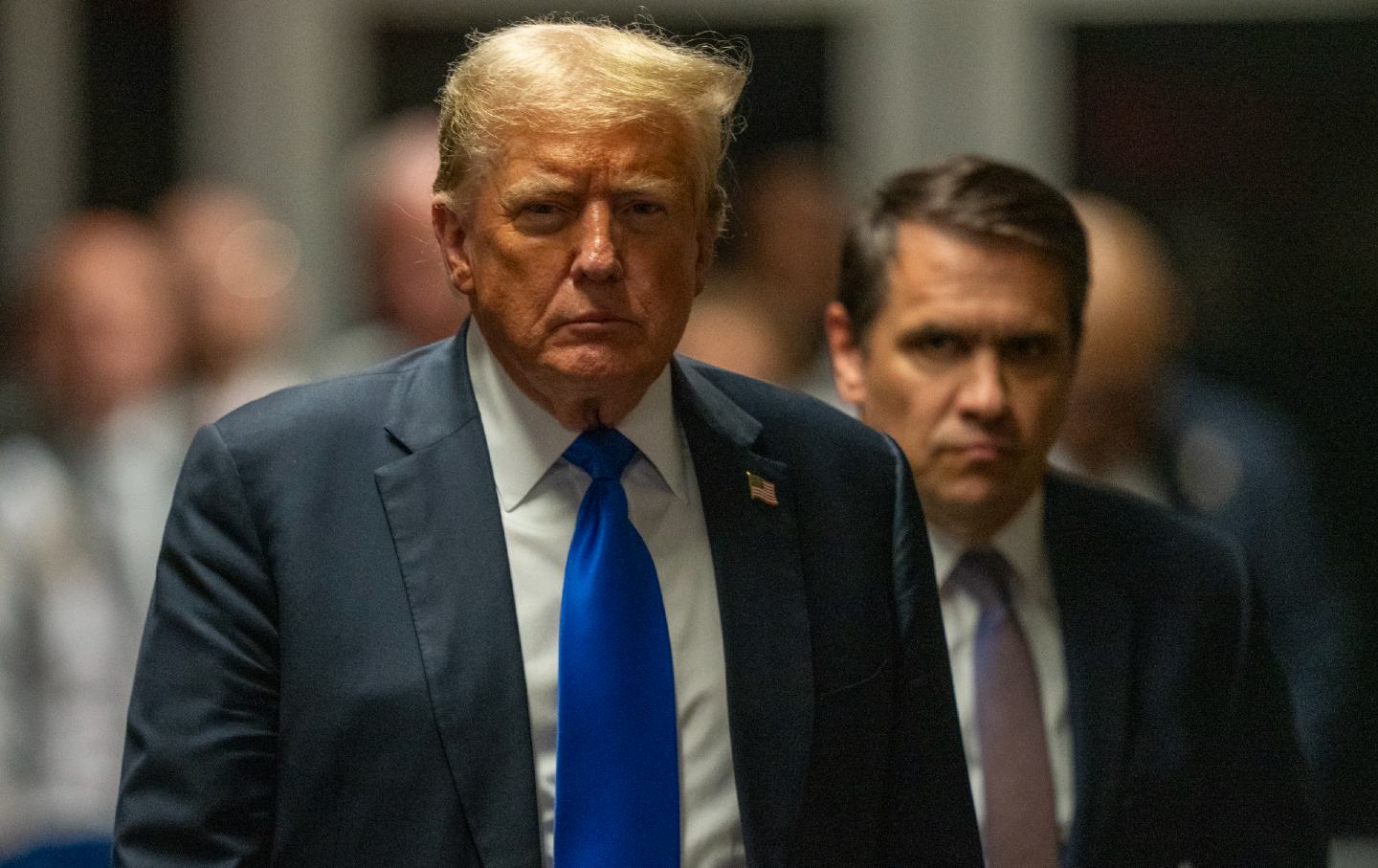
Trump’s Second Presidency Will Only Accelerate America's Imperial Decline Trump’s Second Presidency Will Only Accelerate America's Imperial Decline
Trump is on track to bring a hasty end, silent or otherwise, to an “American Century” of global dominion.

Warning From the Past Warning From the Past
In a new film, journalists confront a dictator.

The Case Against Joe Biden for Complicity in Genocide The Case Against Joe Biden for Complicity in Genocide
The ICC has applied for an arrest warrant for Benjamin Netanyahu. But Israel’s assault on Gaza has been made possible by US support.
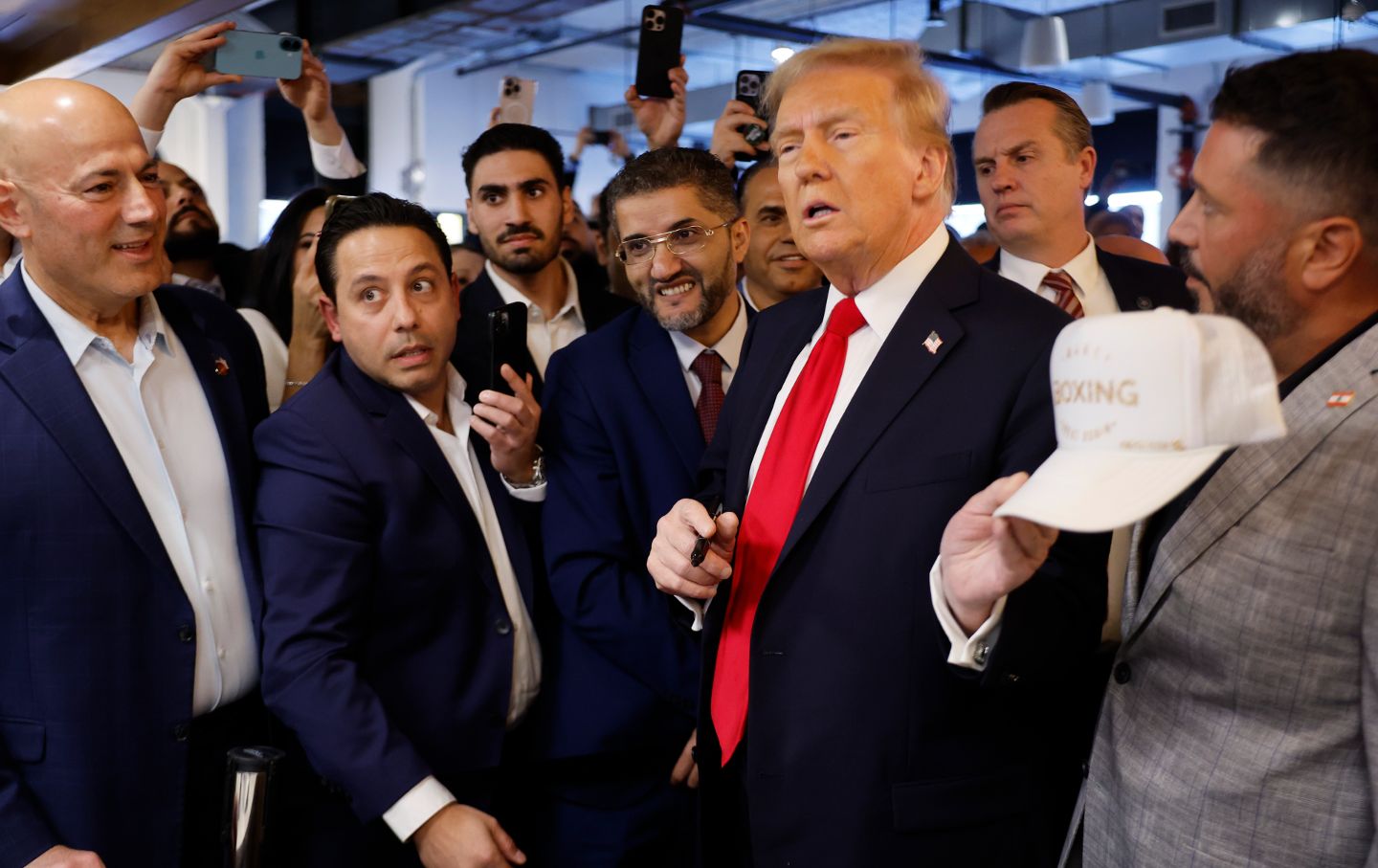
Gazans Heard Trump's Promises. Now They Want Him to Keep Them. Gazans Heard Trump's Promises. Now They Want Him to Keep Them.
Trump made a direct pitch to end the war on Gaza. The people still living there were listening.
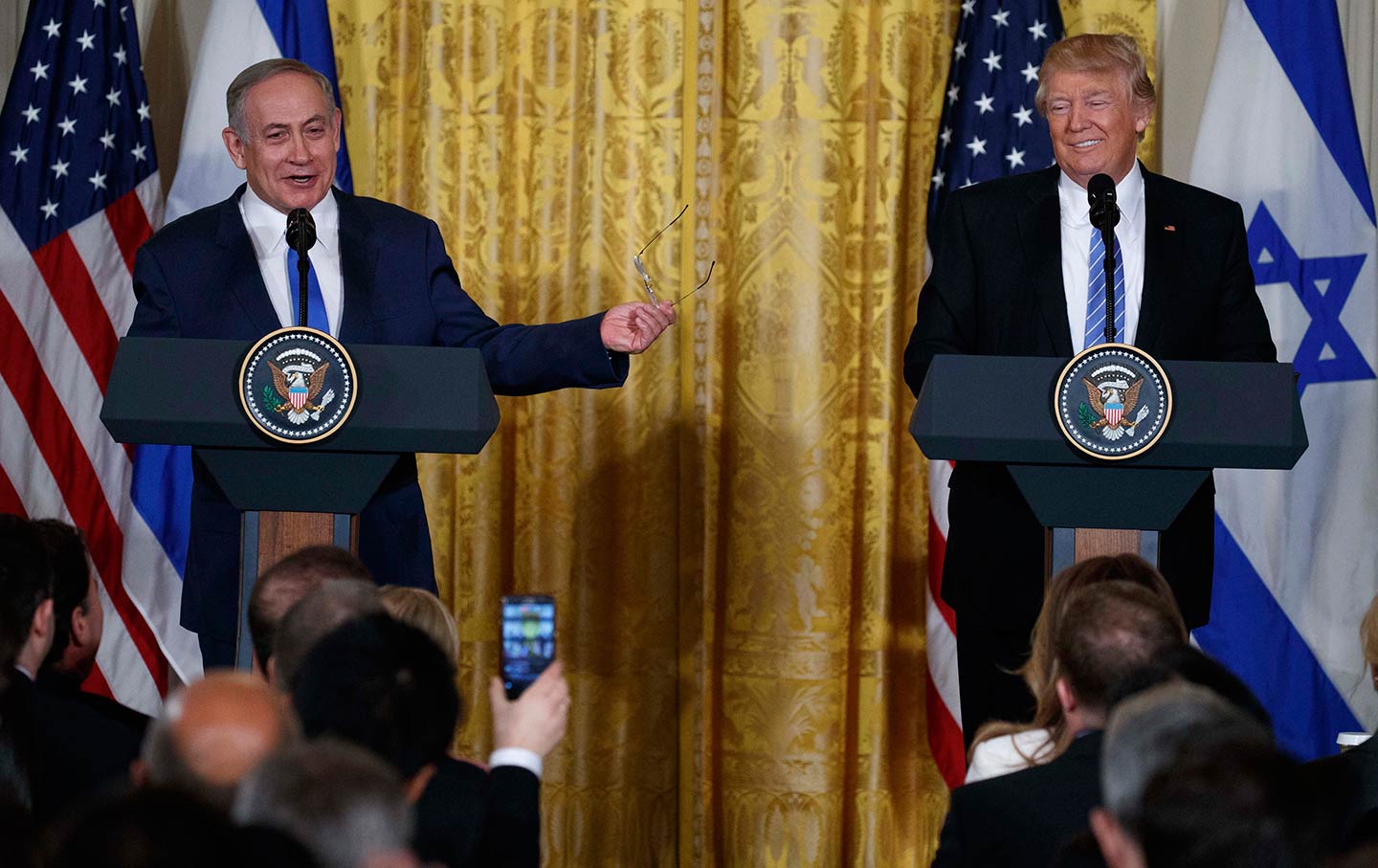
The Fallout of Biden’s Middle East Policy Is Now Trump’s Responsibility The Fallout of Biden’s Middle East Policy Is Now Trump’s Responsibility
In Trump’s hands, the country's diplomatic strategy in the Middle East can only get worse.

